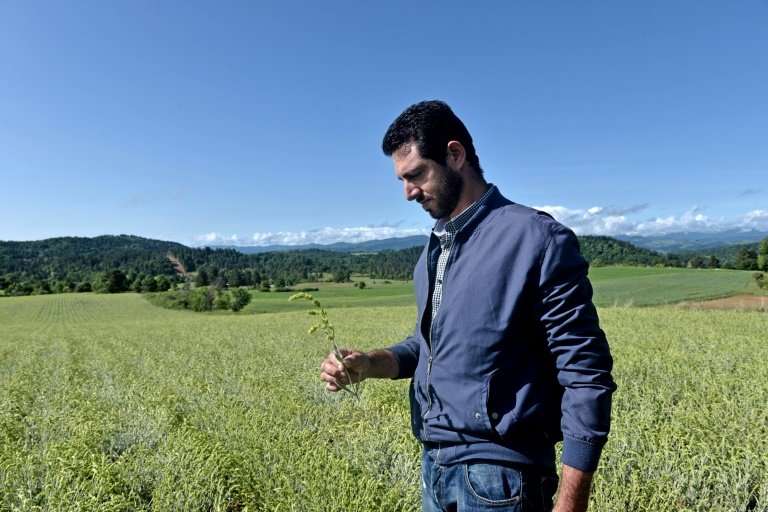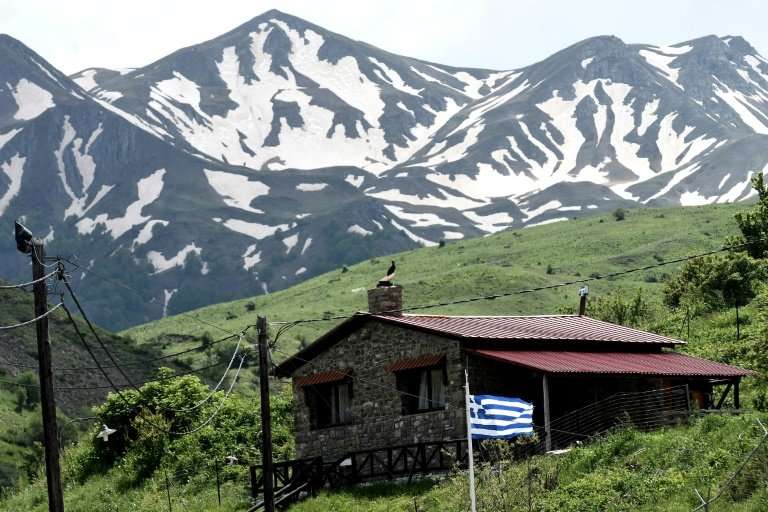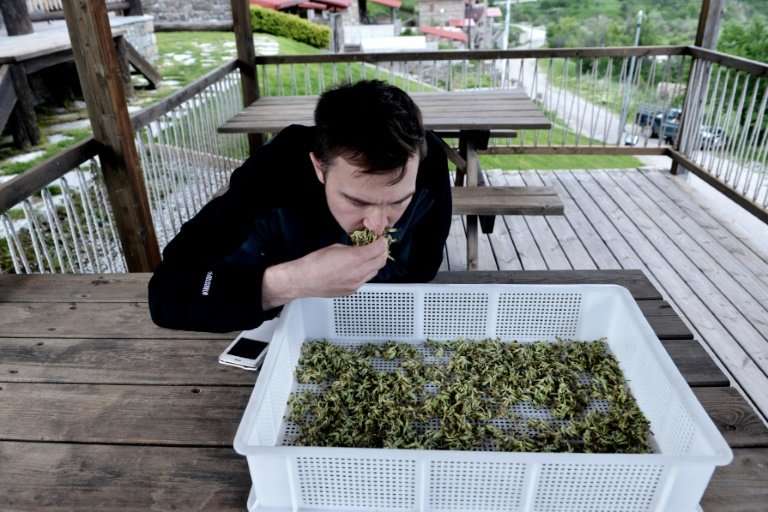Greece wages losing battle against Albanian herb raiders

After seeing its best minds lured to greener pastures during eight years of economic crisis, Greece is now waging an uphill battle to keep its aromatic plants from being plundered too.
In recent months, herb-pickers from neighbouring Albania have descended on Greece's mountain meadows, illegally making off with vast quantities of herbs that can fetch a tidy profit in European markets.
"Organised groups camp out on the mountain, living in makeshift shacks," says Yiannis Spirou, owner of a small alpine retreat located at an altitude of 1,400 metres on Grammos, a mountain near the Albanian border.
"They collect large quantities and take it back home on mules," he told AFP.
The most prized variety sought by the raiders is primula veris, more commonly known as cowslip.
It is not exclusive to Greece, but it does not grow on the Albanian side of the mountain, the locals say.
Common in pasture lands, this yellow-flowered plant is believed to combat respiratory and urinary infections as well as fatigue.
Dried cowslip flowers and roots currently sell for over 20 euros ($24) per 120 grammes on eBay, while a batch of 25 plants goes for 34 euros on Amazon.
"It's the first year that we've noticed this trend being so widespread," said local forestry department chief Nikos Papaefthymiou.

"Access from Albania is easy, and there are several people engaged in this activity. We have given instructions to all the relevant departments and we are trying to address the issue," he said.
Patrolling the blooms
Greek police—hit nationwide by cost cuts—say they have stepped up efforts to catch the culprits, but the terrain is not in their favour.
"We patrol on a daily basis when this plant is in bloom but it's hard to make arrests. As soon as they see us coming, they return to Albania," says a local officer.
Eighteen Albanians have been arrested during the past month, with over 600 kilogrammes of cowslip confiscated, along with the pack mules used to carry it.
But sentences for this sort of activity are light, and the culprits are usually deported to Albania within days.
With easy money to be made, many soon return.
"We have arrested the same person twice," says the officer.

"They tell us that they can make the equivalent of a full year's salary in Albania in just a month" of picking, he added.
"They claim that they sell this plant for 10 to 20 euros per kilo to bulk traders in Albania who then export to Germany and the United States."
Rumour of princely prices, casually reprinted in the media, further exacerbate the problem, says Rigas Tsiakiris, a forestry expert and advisor to Greece's agriculture ministry.
"The harvest of such great quantities in this way causes major damage to the ecosystem," Tsiakiris told AFP.
"In many cases, the plants are uprooted piecemeal, it's an environmental crime," he said.
The herb thieves do not limit themselves to harvesting cowslip. When they find the opportunity, they also make off with other aromatic plants such as orchids and tea.
"One day I went to my field and discovered that over 300 kilograms of tea had been stolen," said Spyros Babakos, a 31-year-old organic tea farmer near the Greek-Albanian border.
"They uprooted the plants, destroying over 2,000 square metres of my crop," he said.
© 2018 AFP


















